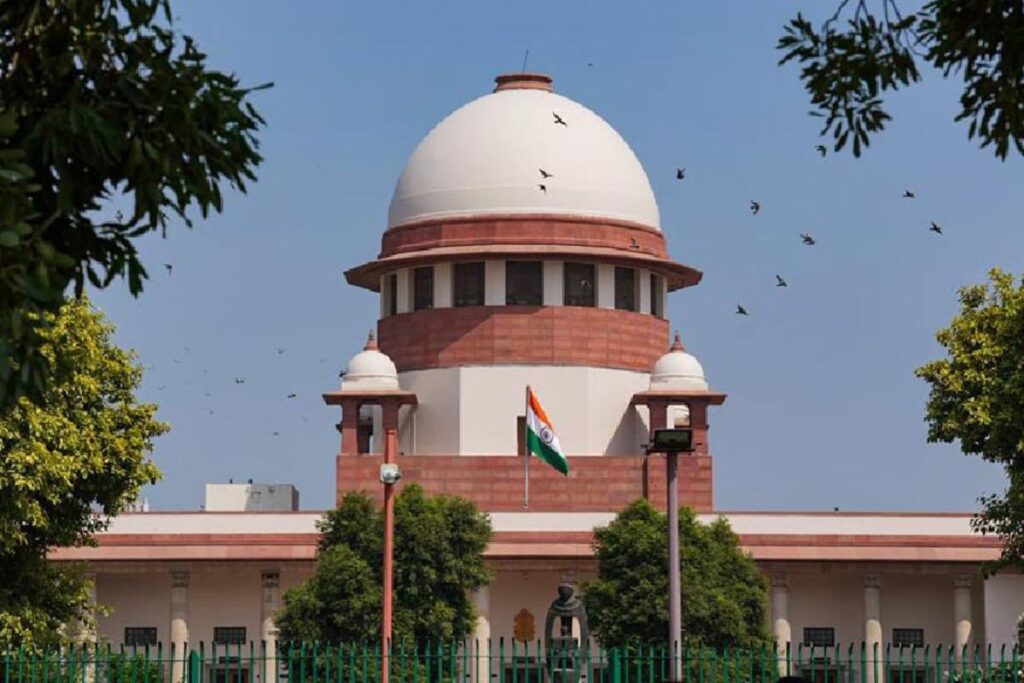Shreya Gupta
On 11th February 2025, the Supreme Court ruled that a Foreigners Tribunal (FT) has no authority to review its own orders, as the law does not permit it to act as an appellate authority over its own judgments. This landmark decision was delivered by a bench comprising Justices Abhay S Oka and Ujjal Bhuyan while setting aside an order passed by an Assam Foreigners tribunal.
The tribunal had initially declared a woman, Rejia Khatun, to be an Indian citizen but later reversed its own decision. The Supreme Court’s ruling has broader implications, ensuring that once an individual is declared an Indian citizen through due legal process, the State or the Centre cannot repeatedly litigate against them without fresh and valid grounds for review through the appropriate appellate mechanism. This decision serves as a safeguard against arbitrary proceedings that could subject individuals to prolonged legal uncertainty regarding their citizenship status.
The case originated from proceedings against Rejia Khatun, a resident of Tezpur, Assam, who faced two separate references before different benches of the Foreigners Tribunal at the state’s behest—one initiated in 2012 and the other in 2016. The first proceeding concluded in February 2018, with the tribunal declaring her an Indian citizen based on oral and documentary evidence. Despite this clear finding, the tribunal in December 2019 entertained a second reference from the state, examined the same documents, and chose to continue proceedings against her. Khatun challenged this decision, but the Gauhati High Court upheld the tribunal’s ruling in June 2023, forcing her to seek redress before the Supreme Court.
In its judgment dated 11th February 2025, the Supreme Court found the approach of both the Tribunal and the High Court legally untenable and quashed the tribunal’s second order. Senior Advocate Pijush Kanti Roy, representing Khatun, argued that the Tribunal had conclusively determined her citizenship status and that reopening the case violated the principle of res judicata, which prevents repeated litigation over the same issue. Accepting this argument, the Supreme Court bench underscored that Foreigners Tribunals do not have the power to review or sit in appeal over their own final orders. The Court noted that in the original 2018 proceedings, the state had participated, presented its case, and failed to challenge the decision through appropriate legal channels, such as an appeal to the high court. Instead, the state attempted to reopen the case through a second reference, thereby circumventing legal procedures and undermining the finality of the tribunal’s prior order. The judgment criticized this approach, pointing out that the Tribunal’s December 2019 order wrongly claimed it had the authority to scrutinize findings from an earlier final judgment. The Supreme Court reaffirmed that the only remedy available to the State or Central Government was to challenge the 2018 order through the proper appellate mechanism, rather than attempting to re-litigate the case.
Additionally, the Supreme Court observed that the High Court had erred in permitting the Tribunal to review its own decision. The bench noted that the High Court overlooked the core issue—whether the Tribunal had the authority to reopen a case by reassessing a judgment that had already attained finality. Consequently, the Supreme Court set aside both the Tribunal’s December 2019 order and the High Court’s ruling, while also clarifying that the state no longer had the liberty to challenge the 2018 order that had declared Khatun an Indian citizen. The bench explicitly stated that this ruling, made in February 2025, does not grant the State or the Union of India the right to reinitiate proceedings against her based on the previous case.
The ruling holds significance in the broader context of Assam’s citizenship verification process, which is governed by the 1985 Assam Accord that set March 24, 1971, as the cut-off date for Indian citizenship. According to an affidavit submitted by the Union Government in the Supreme Court in November 2023, there are currently 100 Foreigners Tribunals handling over 97,000 pending cases as of 31st October 2023. Additionally, 8,461 appeals against Tribunal orders are pending before the Gauhati High Court. Assam Chief Minister Himanta Biswa Sarma, in an August 2023 statement, reported that over 47,900 foreigners were identified in the state between 1971 and 2014, comprising 27,309 Muslims, 20,613 Hindus, and six individuals from other religious backgrounds.
The operations of these tribunals are closely linked to the National Register of Citizens (NRC) in Assam, which was published in August 2019 to document all legal citizens in the state. The final NRC excluded over 19 lakh applicants out of 3.29 crore, including seven lakh Muslims and over five lakh Hindus. Furthermore, the Citizenship (Amendment) Act (CAA) allows non-Muslim refugees from Pakistan, Bangladesh, and Afghanistan who entered India on or before December 31, 2014, due to religious persecution, to apply for Indian citizenship.
Case Title: Rejia Khatun @ Rezia Khatun v. Union of India & Ors.
Case Number: arising out of Special Leave Petition (Criminal) No. 12481/2023
Bench: Justices Abhay S Oka and Ujjal Bhuyan
Click here to access the order
Instagram: Click here.
LinkedIn: Click here.
For Collaboration and Business: info.desikaanoon@gmail.com

